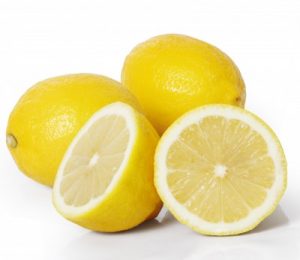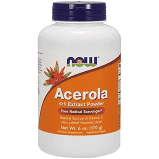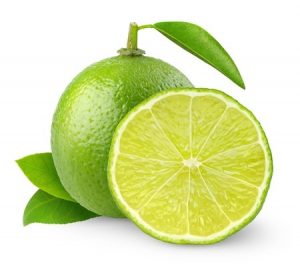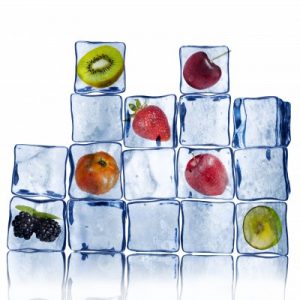
Your body is fueled by basic whole foods rich in vitamins and minerals, fibers, enzymes, amino acids, fats, and proteins – it’s everything you need to maintain an energetic healthy life.
It’s time to get back to the basics of eating to maintain your health and prevent disease.
Today, there is an ongoing debate on the importance of vitamin C. I support the old school of thought that vitamin C is essential for good health and is needed in larger amounts than the current Recommended Daily Allowance of a mere 60 mg/d.
60 mg? Really?
First thing – every person is different, so there IS NOT a one-size fits-all dose for everyone. YOU demand a different amount of vitamin C daily than your husband, co-workers, or neighbors.
As I write in my books and articles, YOUR required dose of vitamin C is determined through your bowel tolerance. So, again, what YOUR body needs to keep your cells saturated in vitamin C is different from what those around you need.
The Best C

Natural vitamin C is best used as ascorbic acid not from a concentrate, and definitely NOT from corn. Some people have a reaction to corn-based vitamin C, creating nausea, intestinal gas, or cramping. This is probably due to its high fructose corn base, and not to the vitamin itself, and these forms of C are typically your less-expensive ones.
I try to eat a sufficient amount of fresh fruits and veggies every day, but I also supplement with ascorbic acid from fruit sources. There are a lot of great products out there, but personally, my favorite vitamin C products come from the NOW Company.
Vitamin C is important for:
- Normal growth and development
- Collagen formation in connective tissues and healthy skin
- The healing of wounds and for recovery from surgery
- Adrenal gland function and hormone production, especially in times of high stress
Vitamin C from ascorbic acid helps in:
- Proper cholesterol metabolism
- Bile production for good digestion
- Alcohol, drug, and smoking detoxification
- Proper iron absorption
- Protecting against pollution and free radicals

C Deficiency
A deficiency of vitamin C causes a failure of the cementing substance that holds the cells of the body together. Now you know why it’s so good for you.
Vitamin C cannot be stored in your body, so it should be provided in your diet every day to keep your body in optimum health. Diets low in vitamin C constitute fragile bones. A partial deficiency of vitamin C results in weariness and fatigue and fleeting pains in the joints and limbs.
These pains are often mistaken for arthritis in adults and growing pains in children.
A severe deficiency of vitamin C results in scurvy, a thinning of the blood just under the skin. Years ago when people developed Spring fever, referred today as the first sign of “hay fever” and “allergies”, a generous dose of fresh fruits and vegetables, tomatoes, and citrus juices were eaten to relieve the symptoms.
Raw vegetables work well.
Humans Are Different

Unlike most other animals, the human is unable to produce its own vitamin C. Humans, guinea pigs, apes, and one species of bat found in India are the only animals known that are unable to produce vitamin C within their livers.
Now I know why my Macaw never suffers with allergies! (And he loves fresh oranges and raw corn.)
A 150-pound animal produces an average of 15 grams of vitamin C every day. When the animal is stressed, their liver produces as much vitamin C as needed to meet the demands on its body.
Some animals have been known to produce up to 100 grams (100,000 mg) of vitamin C in one day when put under extreme stress. Yet, humans depend on their diet exclusively for their supply of vitamin C.
When under stress, people require more than the average daily requirements.
Again, that’s only 60 mg. RDA?
That’s NUTS.

Sources Of Vitamin C
Cooking destroys vitamin C, so it is important to include it in your diet for two or more servings of raw vegetables or fruit every day.
The more common foods containing vitamin C are:
Fruits:
- Oranges
- Grapefruits
- Pineapples
- Tomatoes
- Strawberries
- Watermelon
- Bananas
Raw vegetables:
- Green peppers
- Asparagus
- Potatoes
- Turnips
- Cantaloupe
- Cabbage
- Peas
So, make sure to keep your vitamin C levels to your personal bowel tolerance level, and if you aren’t sure what that is, check out the research that I write about in my books or contact me for a phone consultation.
_____________
If you want to learn more about disease prevention, contact me at janethull.com. Remember that you are never alone when you are looking for good health!
Gain access to all of my online programs, ongoing support, monthly Q&A, and more by joining my Private Inner Circle Membership Program. I look forward to supporting you on your journey to alternative health and wellness.
_____________
Disclaimer: This article is for informational purposes only, and is educational in nature. The FDA may not have evaluated some of the statements. This article is not intended to diagnose, treat, cure, or prevent any disease. Please discuss with your own, qualified health care provider before adding supplements or making any changes to your dietary program.
Before taking vitamins, consult your doctor; pre-existing medical conditions or medications you are taking can affect how your body responds to multivitamins.
You have our permission to reprint this article if you attribute us with a live back-link to this article and the youtube links. https://janethull.com/